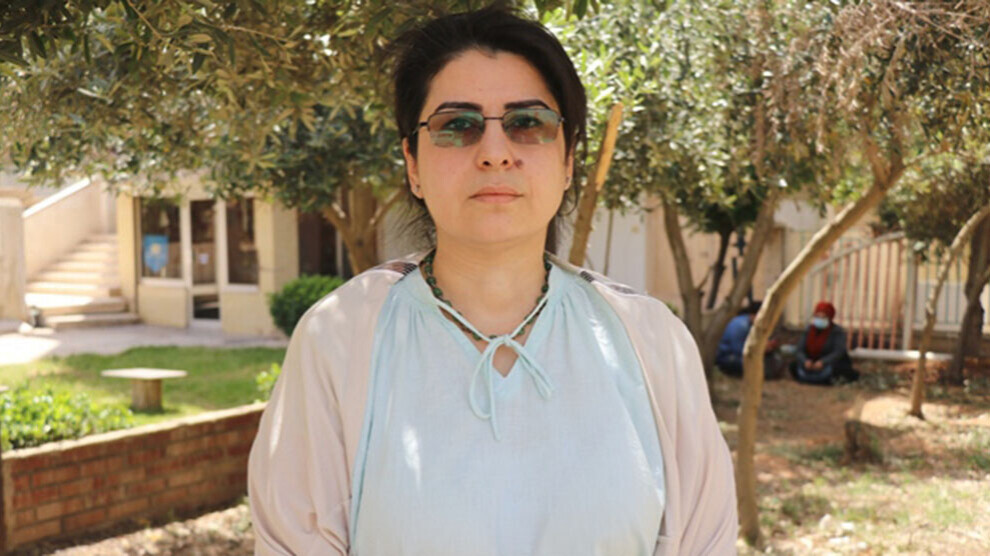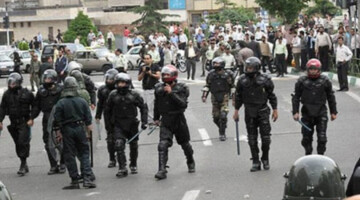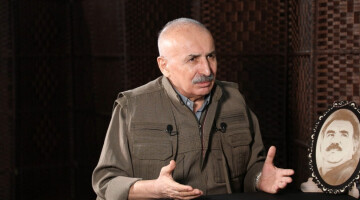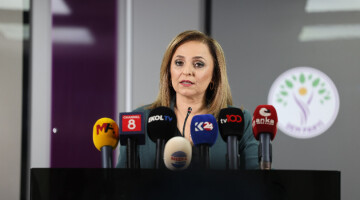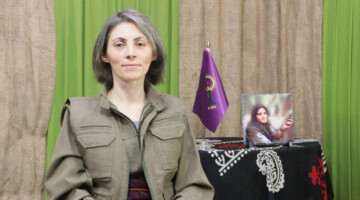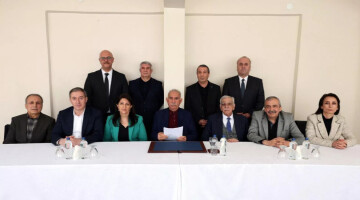The governments in Damascus and Ankara are objectively at odds. Turkey occupies parts of northern Syria and there have been repeated clashes between Turkish and Syrian troops since 2011. However, when it comes to weakening the Autonomous Administration areas in northern and eastern Syria, the regime and Turkey appear to act in unison. This is shown, among other things, by the fact that Damascus has at most made light condemnation statements about the Turkish occupation of Cerablus, Serêkaniyê, Azaz, al-Bab and Afrin. At the international level, Syria has not taken any steps. This is considered an indication of secret agreements between the Turkish and Syrian governments.
In an interview with the ANHA news agency, Lina Berekat, general coordinator of the Syrian Women's Council, referred to a joint policy of the regimes in Ankara and Damascus to change the demographic structure of the region and placed this in the context of the anti-Kurdish policy of the Syrian government launched by Damascus in 1963, the so called "Arabian Belt" along the border between Dêrik and Girê Spî (Tall Abyad). As part of this policy, countless Arab settlers were brought to the region, privileged over the Kurdish population. At the same time, many Kurds were stripped of their citizenship.
"No one can escape chaos"
Even if Damascus repeatedly denies this, the Turkish state press reports on "security cooperation" between the two officially enemy states.
In a statement in early May, Turkish Foreign Minister Mevlüt Çavuşoğlu spoke openly about this cooperation. As early as September 2021, the Turkish side was talking about “security cooperation” with Damascus. Damascus denied these statements at the time. In practice, however, it turned out that the regime in Damascus had obviously made arrangements with Ankara. However, these deals could represent a "mortal embrace" for Syria as Turkey apparently plans to perpetuate its occupation and annex parts of Syria. In view of this, Lina Berekat warned: “If Syria is divided, it will affect the entire Middle East. No one can escape the chaos."
"The attacks on Kobanê have increased"
Regarding the current situation, Berekat said: “The occupying Turkish state has been trying to penetrate northern Syria for a long time. Attacks on the city of Kobanê, which made history for its resistance to ISIS and other radical organizations, have increased recently. These attacks are intended to destroy peace in the region and throw people into chaos. The Turkish state has played a role as a warmonger in Syria since the conflict began in 2011. The Turkish state carried out many attacks on the region. It occupied many regions and forced their population to flee.” Berekat warned that the Turkish state is pursuing the goal of destroying the Autonomous Administration and the democratic project in the region. The Turkish state does not want peace in the region and is attacking the areas under the pretext of border security. This policy represents a life-threatening situation for the people of Syria.
"The women's revolution is in danger"
Berekat pointed out the sexist character of the attacks and the occupation regime: “In the occupied territories and other regions, it is mainly women who are attacked. The crimes against women and the peoples of Syria have now reached a serious dimension. For this reason, the peoples of the region, their organization and the women's revolution are in danger.” Turkish drones and mercenary groups repeatedly murdered members of the women's movement. Rules are implemented in the occupied territories that often make it impossible for women to leave their homes. Jihadist mercenaries with ISIS ideology rule the streets there. Again and again, women are abducted, experience severe violence or are tortured to death.
Berekat pointed to the Islamist and right-wing extremist mercenary groups used by Turkey as infantry and occupation forces and warned of Turkey's ambitions reaching far beyond Syria. It is about occupying Iraq and the other countries in the region and building a new Ottoman Empire.
“Cultural genocide is a war crime”
The Turkish state said it would settle over a million refugees from various regions of Syria in the occupied territories in northern and eastern Syria. The refugees are accommodated in specially built settlements and in the houses of the displaced population. Berekat emphasized that the expulsion and demographic change constitute the crime of “cultural genocide” and concluded: “The Syrian population can no longer tolerate this crisis. A political dialogue process should be developed so that the crisis can be resolved as quickly as possible and the refugees can return to their original regions.”

